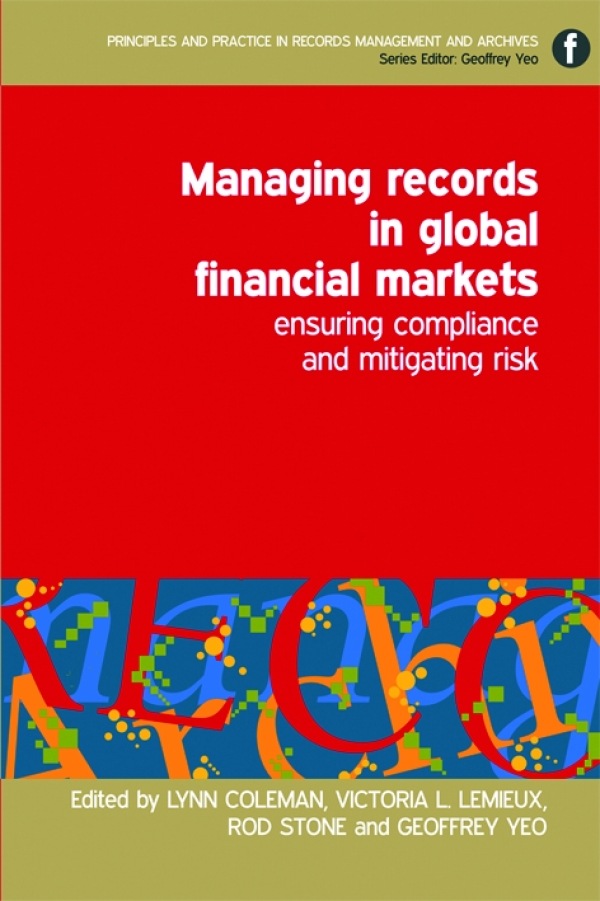Book contents
- Frontmatter
- Contents
- Introduction to the series
- Contributors
- Introduction
- List of abbreviations
- 1 Global financial markets
- Part 1 Regulatory and legal compliance
- 2 Conflicts of laws in multiple jurisdictions
- 3 Impact of the extrajurisdictional reach of the USA
- 4 Moves towards a common regulatory framework for financial services in the European Union
- 5 Data exchange and confidentiality: an Asia Pacific perspective
- 6 Information privacy in the USA
- Part 2 Balancing risk and return
- Part 3 Litigation-related issues
- Part 4 Record-keeping approaches
- Index
3 - Impact of the extrajurisdictional reach of the USA
from Part 1 - Regulatory and legal compliance
Published online by Cambridge University Press: 08 June 2018
- Frontmatter
- Contents
- Introduction to the series
- Contributors
- Introduction
- List of abbreviations
- 1 Global financial markets
- Part 1 Regulatory and legal compliance
- 2 Conflicts of laws in multiple jurisdictions
- 3 Impact of the extrajurisdictional reach of the USA
- 4 Moves towards a common regulatory framework for financial services in the European Union
- 5 Data exchange and confidentiality: an Asia Pacific perspective
- 6 Information privacy in the USA
- Part 2 Balancing risk and return
- Part 3 Litigation-related issues
- Part 4 Record-keeping approaches
- Index
Summary
Introduction
As discussed in Chapter 2 ‘Conflicts of laws in multiple jurisdictions’, the application of extraterritorial laws and regulations can have profound implications for an international financial institution's record-keeping policies. Institutions therefore need to be aware of the existence and impact of such laws and regulations and to draft and review their policies accordingly. The USA has gained a reputation for the extraterritorial reach of a number of its laws and regulations and set out below are some examples of these; of course, while the USA is probably the most striking example of such provisions, international financial institutions should be aware of other jurisdictions as well. The examples below are of US laws with potential extraterritorial effect of particular relevance to financial institutions.
The extraterritorial application of US laws has possibly received greatest exposure in the ongoing saga involving attempts by the US Internal Revenue Service to oblige the Swiss financial institution UBS to disclose the names of account holders alleged to have engaged in tax evasion involving the use of Swiss bank accounts. UBS faced the unenviable dilemma of choosing between disobeying disclosure orders in the USA and breaching Swiss banking secrecy obligations. Although the dispute is reaching resolution following the intervention of the Swiss authorities, the matter has been complex and difficult for UBS.
Sanctions
The International Emergency Economic Powers Act, Trading with the Enemy Act and related Off ice of Foreign Assets Control (OFAC) regulations implement economic sanctions against certain identified countries and groups (loosely regarded as being, or as being associated with, traffickers in narcotics and/or terrorists). The sanctions bar business activities, including financial activities such as fund payments and transfers, unless these are licensed. An example particularly relevant to banks involves the clearing of US dollars for, or on behalf of, a sanctioned country, entity or person.
Until relatively recently non-US banks were unlikely to be affected by these provisions as non-US persons and entities not subject to OFAC's prohibitions (such as a non-US bank operating outside the USA) could not be sanctioned for violating OFAC's prohibitions, although they could (often unknowingly) cause violations by US dollar clearers.
- Type
- Chapter
- Information
- Managing Records in Global Financial MarketsEnsuring Compliance and Mitigating Risk, pp. 33 - 40Publisher: FacetPrint publication year: 2011

